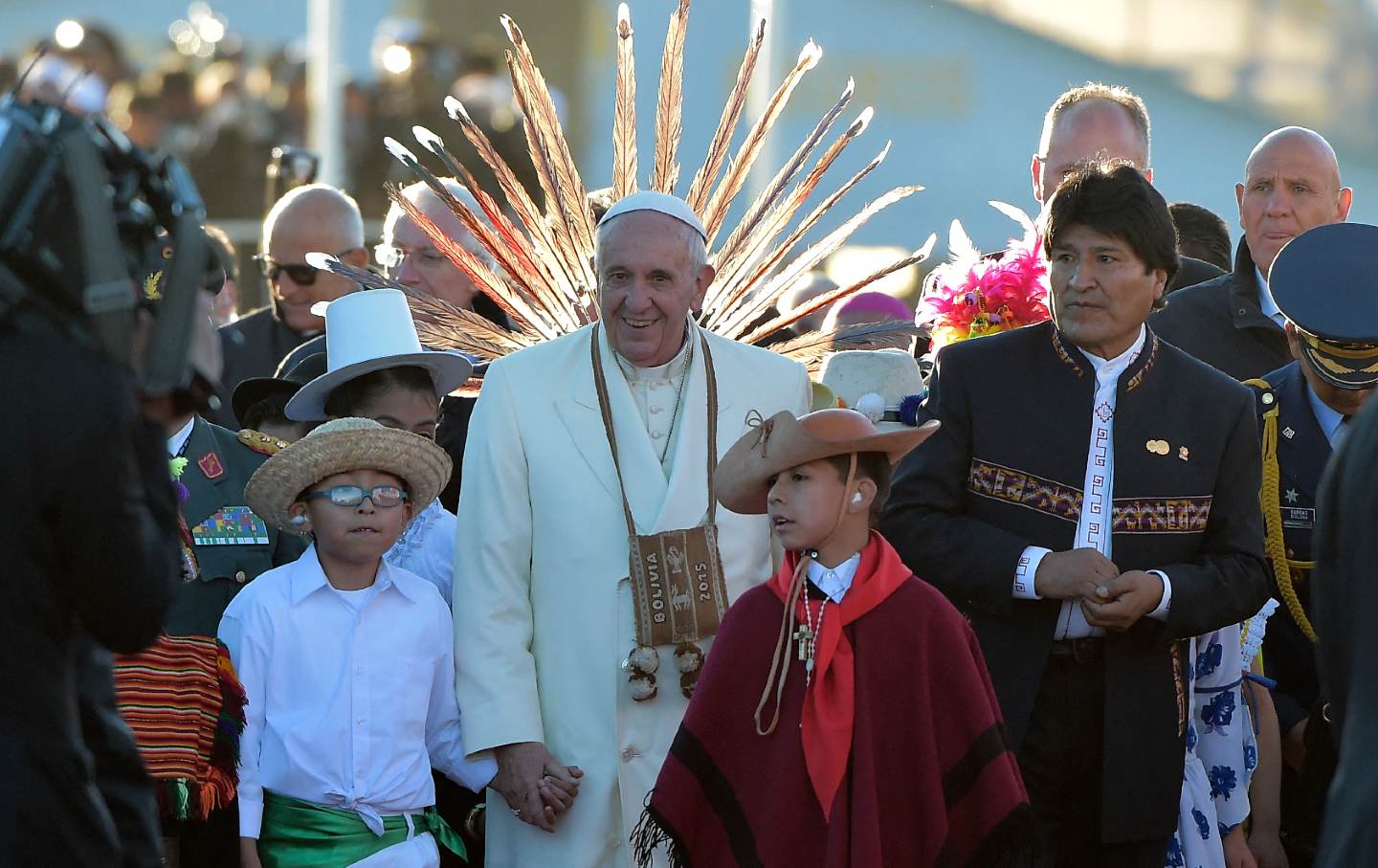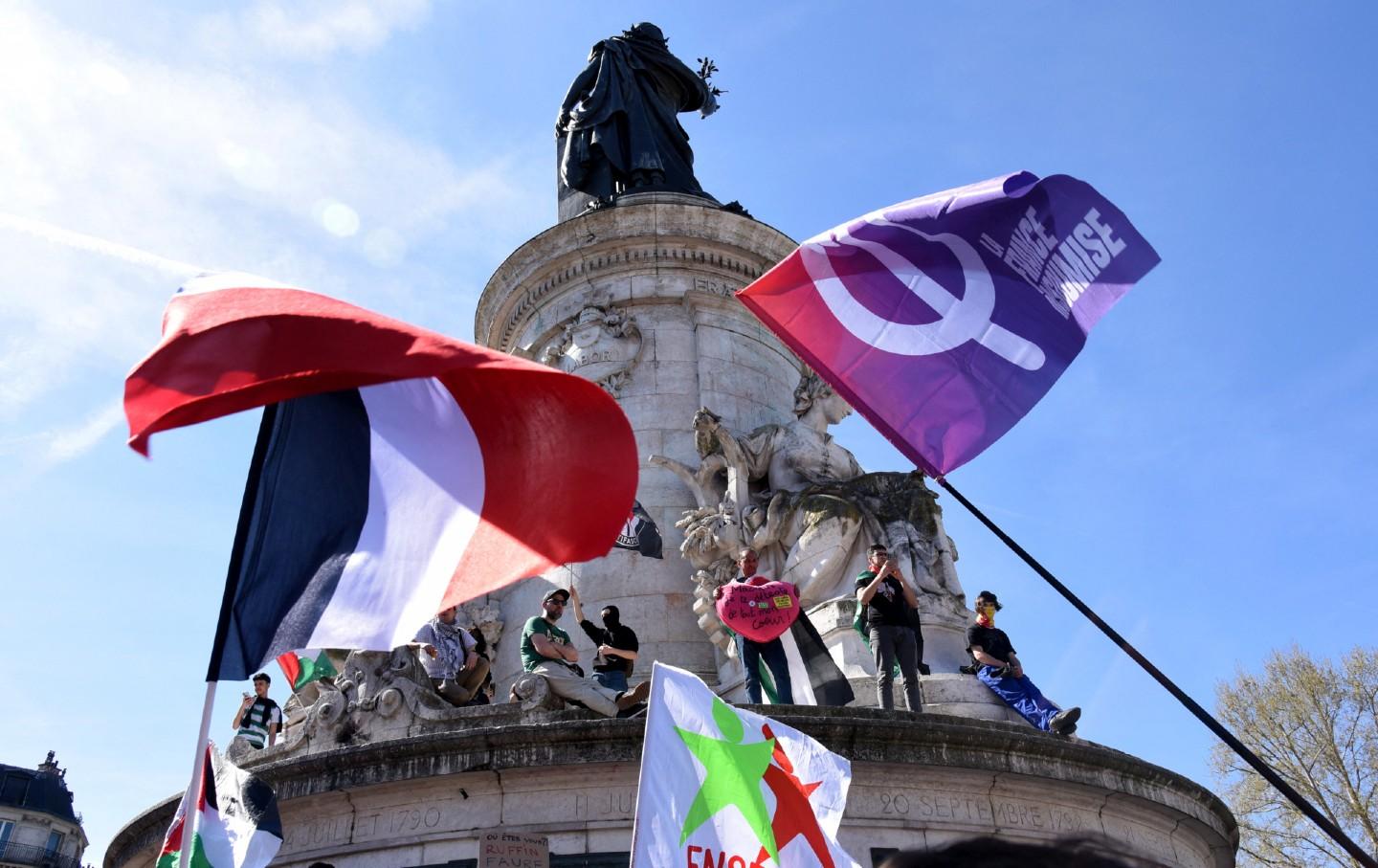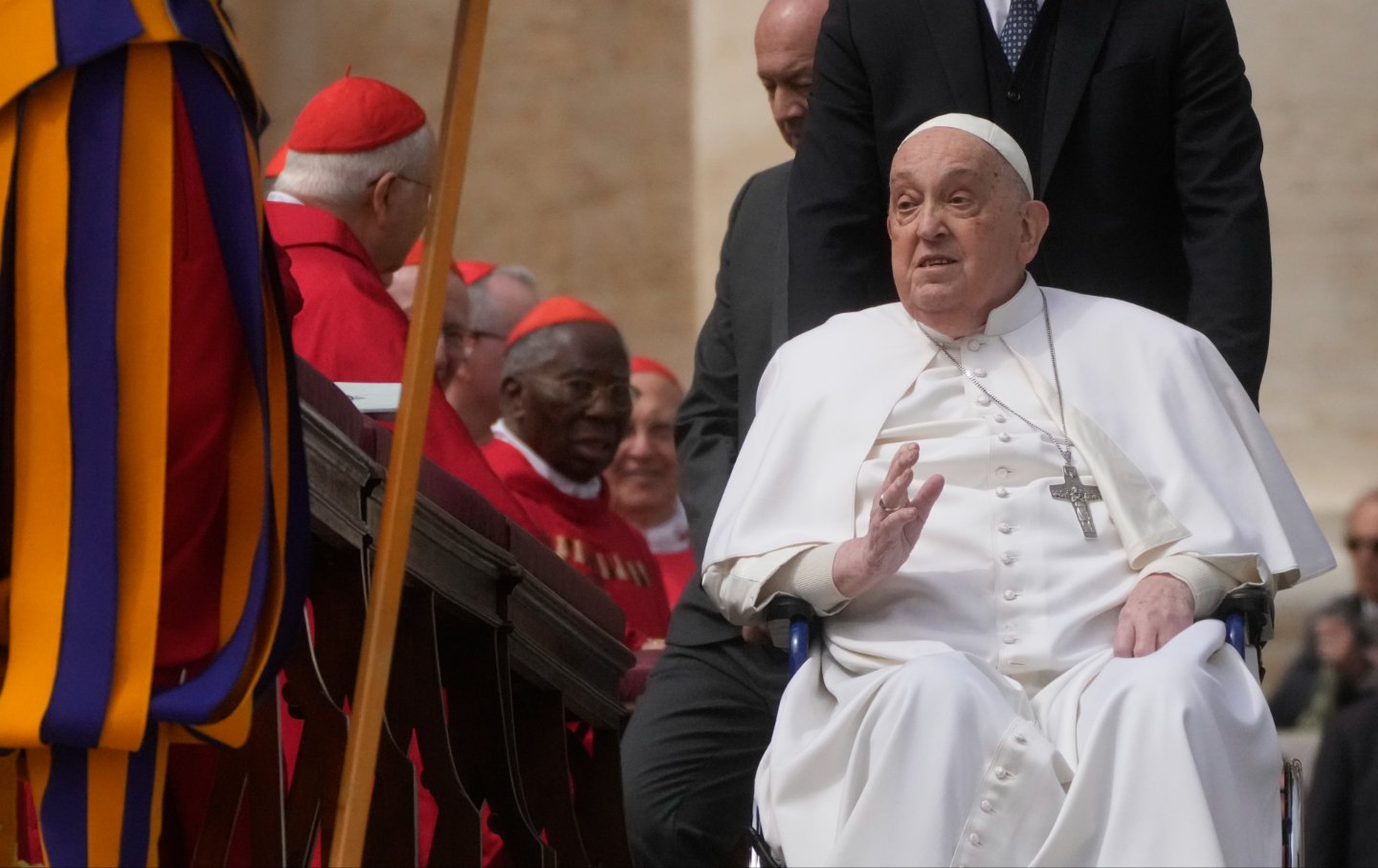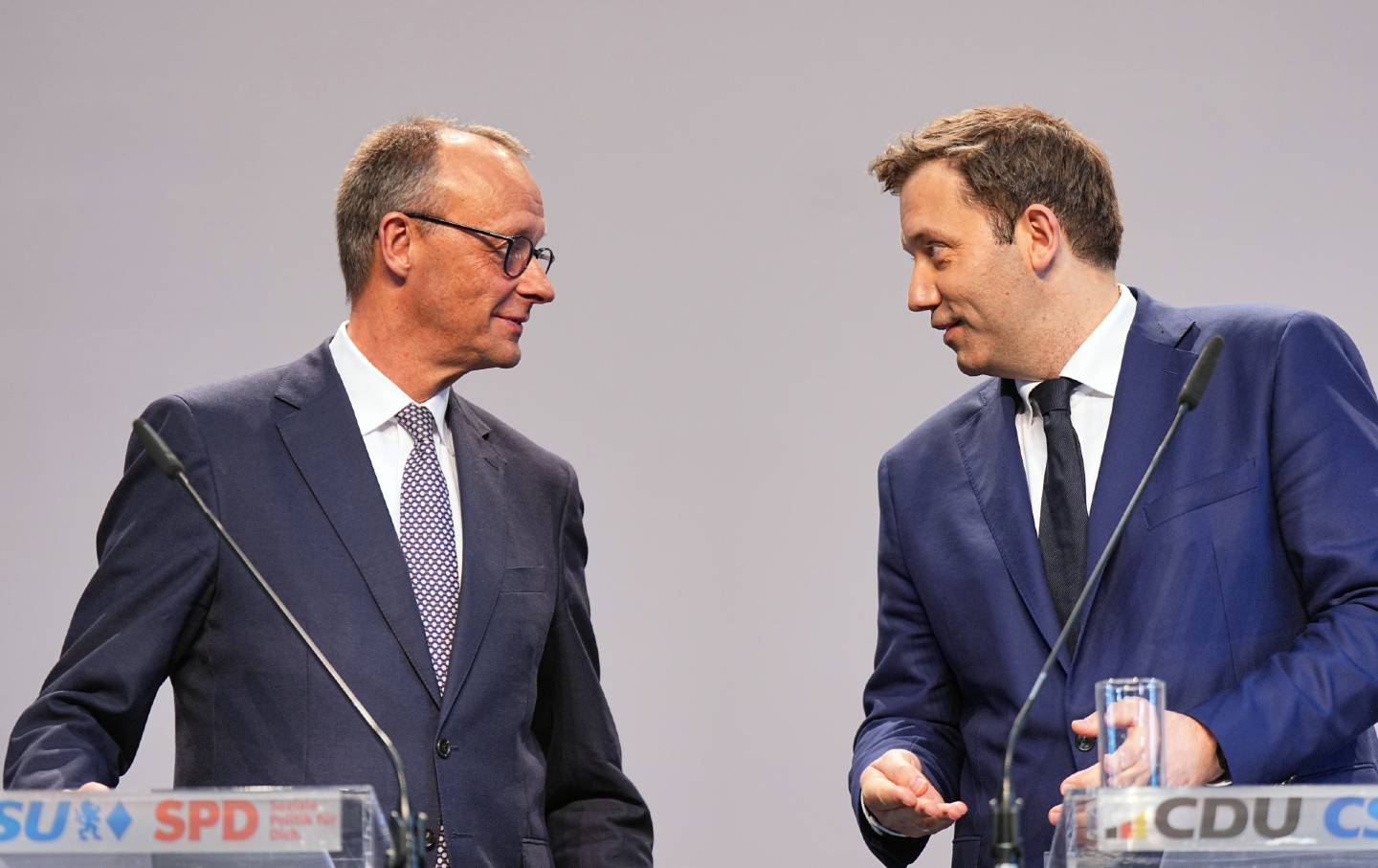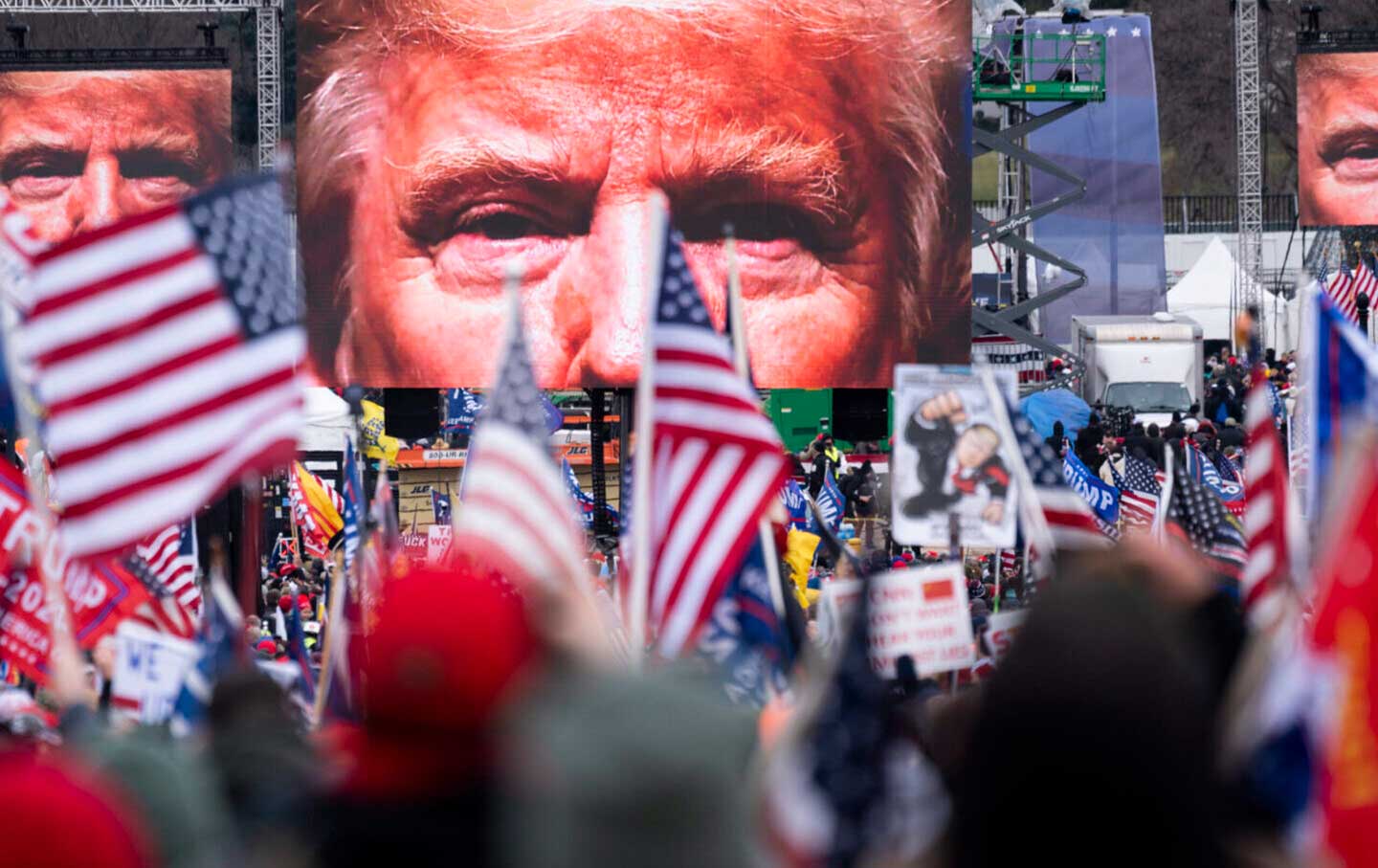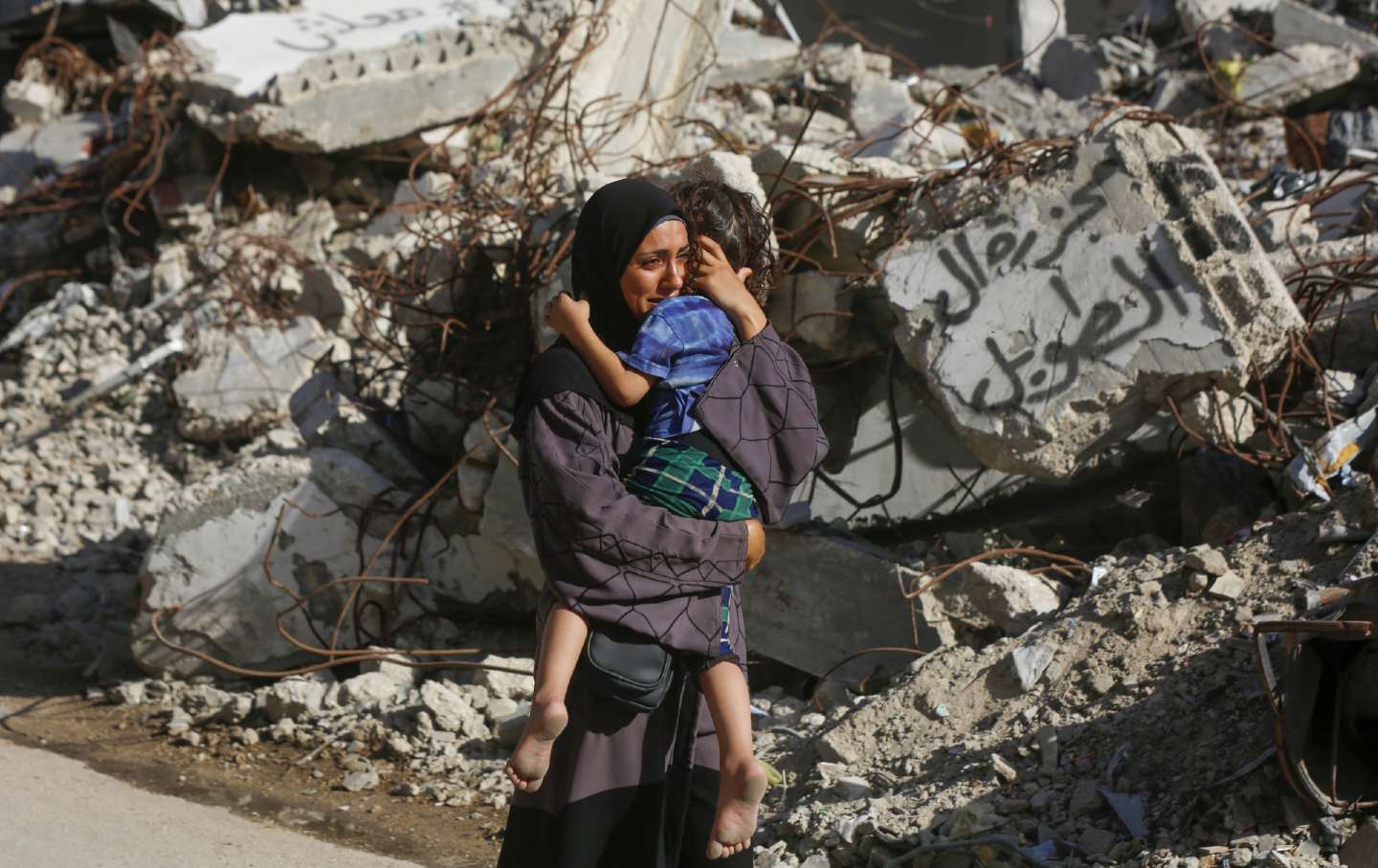The Political Divorce Rocking the Philippines
The feud between the Dutertes and the Marcoses could have dire consequences for the cold war between China and the United States.

“Amarriage made in heaven,” gushed Senator Imee Marcos before her brother, Ferdinand Marcos Jr., sealed a deal with Sara Duterte, daughter of former president Rodrigo Duterte, to run as a duo in the lead-up to the 2022 national elections. Marcos Jr. would be president, Sara Duterte his vice president. The most influential dynasty of the northern Philippines had joined forces with the most powerful one from the south.
That marriage is now over, with Vice President Duterte’s resignation from her cabinet position as secretary of education on June 19.
Marcos Jr.’s father ruled the Philippines for over two decades, first as elected president, then as dictator. In 1986, a popular insurrection known as the EDSA Uprising ousted the elder Marcos, but his family maintained a large following in the northern Ilocos region on Luzon, the country’s largest island. Rodrigo Duterte was the first president from Mindanao, the Philippines’ second-largest island, and during his term in office, from 2016 to 2022, Sara Duterte essentially inherited the mayorship of the family’s bailiwick, the city of Davao. The two families were never particularly close, though Rodrigo Duterte had won some gratitude from the Marcoses for allowing Marcos Sr. to be buried in the national heroes’ cemetery, despite strong opposition to it.
Working together, Marcos Jr. and Sara Duterte were so confident of victory that they ran on a single-word platform: “Unity.” Their ticket announced no public policy positions, and they boycotted the presidential and vice presidential debates that would have forced them to articulate a political program. It worked; the “UniTeam” swept the elections.
Students of Philippine politics know that dynastic alliances are strictly for convenience. So it was not a surprise when the union eventually came apart. Still, the unraveling of their political marriage has been notable for three reasons. First, the drama, which has seen the two sides lob sensational accusations at each other. Second, the stakes: The vice president’s father could actually end up at The Hague. And third, the breakup’s entanglement with the struggle for hegemony between China and the United States.
For all its potentially deadly consequences, the fight for power in the Philippines has not been without its moments of comic opera. During a carefully scripted television interview in April, the first lady, Liza Marcos, who is widely assumed to be the behind-the-scenes decision-maker, reached back to 1970s Filipino slang for the term “bad shot”—meaning an unwelcome individual—to describe the vice president. This was most likely a response to Rodrigo Duterte calling her husband a “crybaby” for being America’s protégé during Marcos Jr.’s trip to Washington for an anti-China photo op with US President Joe Biden and Japanese Prime Minister Fumio Kishida. At a meeting with the press afterward, a reporter asked Marcos Jr. about Duterte’s needling. Instead of ignoring the question, Marcos Jr. responded by taking Duterte’s barb seriously, pleading, “Did you see me cry?”
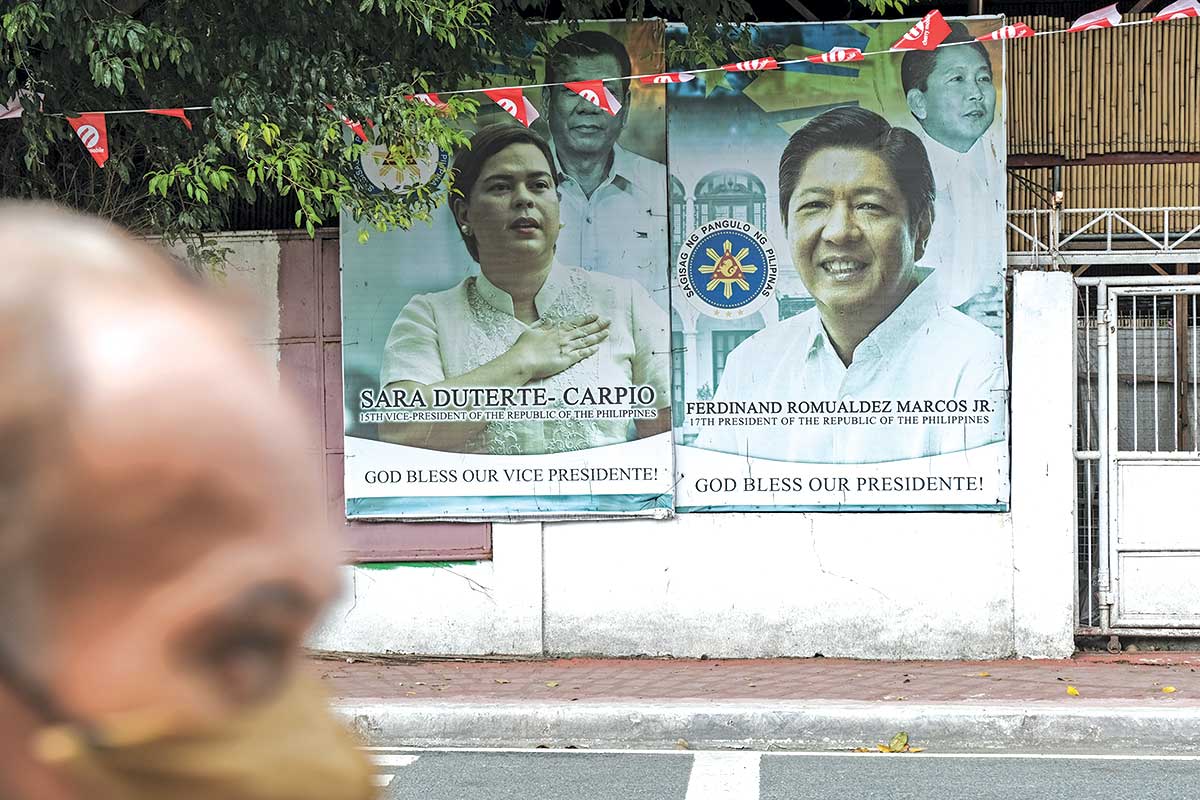
Toward Rupture
The political wedding was not the elder Duterte’s idea. (He’d called Marcos Jr. a cocaine user, among other things.) The Duterte patriarch was convinced that if his daughter were to run for president, she would win, and in late 2021, preelection polls showed Sara winning 20 percent of the vote, with Marcos Jr. trailing at 15 percent.
Duterte Sr.’s primary concern was that, once in office, his daughter would be outmaneuvered by Marcos Jr. After the election, his fears were confirmed by a series of developments. First, Marcos decided to give the vice president the secretary of education post rather than the national defense one she had publicly hankered for. Then the House of Representatives—which has been run as a fiefdom by Speaker Martin Romualdez, Marcos Jr.’s cousin—denied her a “confidential intelligence fund” for 2024 after her office could not account for how it spent an earlier slush fund of 125 million pesos ($2.2 million) in just 11 days.
The nail in the coffin of the alliance, as far as Rodrigo Duterte was concerned, was when the president and Romualdez endorsed amending the 1987 Constitution, which Duterte interpreted as a way to make Romualdez prime minister and derail Sara’s plan to succeed Marcos Jr. via the presidential election in 2028. The constitutional changes would make the Philippines a parliamentary system, abolishing the presidency or turning it into a ceremonial position and making the head of the ruling party in the lower house of parliament the head of state. Such a move would favor Romualdez, who does not have the popularity to win a presidential election but has the loyalty of the majority of members of the House.
At that point, the former president could no longer hold back. In late January, at a rally in Davao City, he called Marcos a bangag, a slang word for “drug user,” and denounced his plan to change the Constitution, warning that, like his father, he could be ousted if he pushed through with it. This was seen as a veiled appeal for a coup against the president. Rodrigo Duterte’s younger son, Sebastian, the mayor of Davao, duly called on Marcos Jr. to resign.
The Palace Hits Back
The Dutertes’ tantrums did not go unanswered at Malacañang, the presidential palace. The International Criminal Court (ICC) has been trying to get the government to cooperate with its investigation of Rodrigo Duterte for thousands of suspected extrajudicial executions that took place during the so-called war on drugs under his regime. Like its predecessor, the current administration initially declined. But in November of last year, the head of the House of Representatives’ Human Rights Committee filed a resolution urging the administration to work with the ICC in its investigation of Duterte and his accomplices—a move that could not have advanced without the blessings of House Speaker Romualdez.
In recent weeks, former Duterte officials, such as his ex-spokesman Harry Roque, have denounced the administration for allegedly allowing ICC investigators to enter the country. Antonio Trillanes, who says he is acting as a go-between for the administration and the ICC, claimed recently that an arrest warrant could be issued for Duterte as early as the middle of this year.
Not surprisingly, panic has gripped the Duterte camp, with Roque saying that making Duterte accountable to the ICC is “not as simple as putting him in a private plane and bringing him to The Hague.” He added, “Legally, the court has no jurisdiction, and we will exhaust all legal remedies, including of course the fact that it is mandatory to face Philippine courts first before they can actually bring an accused to the ICC.” (Duterte withdrew the Philippines from the ICC in March 2019, but his administration is liable for any crimes committed before that date.)
The prospect of an ICC arrest hanging over Duterte is emerging as part of the administration’s strategy of defanging the former president and his family. The other part involves highlighting allegations that Duterte betrayed the country by making a “gentleman’s agreement” with President Xi Jinping of China to refrain from asserting Philippine sovereignty over disputed territory in the South China Sea. The Duterte camp might have brought this latest controversy on themselves, since it was Roque—known for his inability to control his speech—who disclosed that Duterte had made a verbal agreement with Xi not to send construction materials to an old naval vessel that the Philippines had deliberately grounded years ago on a strategic coral reef, Ayungin Shoal, to serve as a symbol of its sovereignty over the area. With Chinese Coast Guard ships now regularly intimidating and attacking Filipino fishermen and supply missions to Philippine military detachments in the distant outposts, the revelation was explosive. As if on cue, Marcos Jr. said he was “horrified” by the news, while Duterte scrambled for an explanation for his apparent subservience to the Chinese leader.
To some observers, Malacañang is toying with the Dutertes the way a cat toys with a mouse before pouncing for the kill. The president denies that he wants to extradite Duterte to The Hague, but his allies’ actions belie this. Duterte left office with a 75 percent approval rating, and publicly flogging him for caving to the Chinese leader is one way the administration can erode his popularity and prepare the ground for his extradition should that become necessary.
Popular
“swipe left below to view more authors”Swipe →The Marcos-Duterte power play has also served to distract from the government’s inability to address the country’s economic problems. The inflation rate in March was 3.7 percent, the agriculture sector is dying, and manufacturing has nearly vanished after 40 years of neoliberal policies, leaving the economy largely dependent on the $37.2 billion in remittances that overseas workers send home each year.

The Cost of Containment
The latest political games also distract from the steps Washington has taken to strengthen its military presence in the Philippines. In early 2023, the US acquired four more bases on the archipelago, adding to the five it had already received from the administration of Benigno Aquino III over a decade ago. After enduring six years of defiant rhetoric from Duterte, Washington was happy to back Marcos Jr.—notwithstanding the fact that the US helped oust his father in 1986, when it shipped the dictator from Manila to Honolulu.
Yet there is more than meets the eye in Marcos Jr.’s 180-degree turn from his predecessor’s pro-China stance. Marcos Jr. may not have a clear idea of his country’s national interest, but he likely knows where his family’s interests lie. The Marcoses have stashed an estimated $5 billion to $10 billion of stolen wealth abroad—most of it in countries subject to Washington’s financial reach, places like Italy, Austria, Australia, the Antilles, the Netherlands, Hong Kong, Switzerland, Singapore, and even the US itself. Marcos Jr. must be all too aware that the United States froze $58 billion worth of assets belonging to Vladimir Putin’s allies in retaliation for Russia’s invasion of Ukraine. If Marcos Jr. were to fail to follow Washington’s lead on China, the US could ensure that the same thing happens to his own family’s wealth.
Duterte’s allies have tried to stir up popular feelings against Marcos’s obedience to the US, decrying his policies as making the country a sitting duck in the event of a hot war between the US and China. They are not wrong, since US bases in the Philippines would not be used to defend Philippine territorial interests in the South China Sea or to assist Taiwan in the event of a Chinese invasion. Washington’s real intent is to build up the Philippines as a launching pad for a potential attack on the Chinese mainland.
The problem faced by anyone opposed to the US buildup, whether they are opportunistic Duterte allies or long-standing critics on the left like myself, is that China’s unilateral claiming of over 90 percent of the South China Sea (called the West Philippine Sea in Manila) and its high-pressure water-hosing of Philippine fishing boats and Coast Guard vessels have made Beijing the bully and the US a savior to many Filipinos. In a recent survey of attitudes in Southeast Asia toward China and the US, over 83 percent of respondents in the Philippines favored the US over China, with the top concern for over 90 percent of them being Beijing’s behavior in the South China Sea.
Washington took advantage of the recent water-hosing incidents and summoned Marcos Jr., along with Japan’s Kishida, to a veritable council of war on April 11, at which Biden extended what he said was an “ironclad” commitment to retaliate for intimidation of Philippine vessels in the South China Sea. If Washington ever moves to classify water-hosing incidents as an attack, such an incident could trigger a response under the Cold War–era US-Philippine Mutual Defense Treaty.
But water-hosing is not the only possible trigger of conflict between these nuclear superpowers. The South China Sea is filled with rival warships performing naval “exercises”; among the latest visitors are vessels from France and Germany, US allies that have been dragooned far from NATO’s traditional area of coverage to contain China. US and Chinese warships have been known to play games of chicken—heading at each other and then swerving at the last minute. A miscalculation of a few feet could result in a collision. Fears that the South China Sea will be the next site of armed conflict are reasonable.
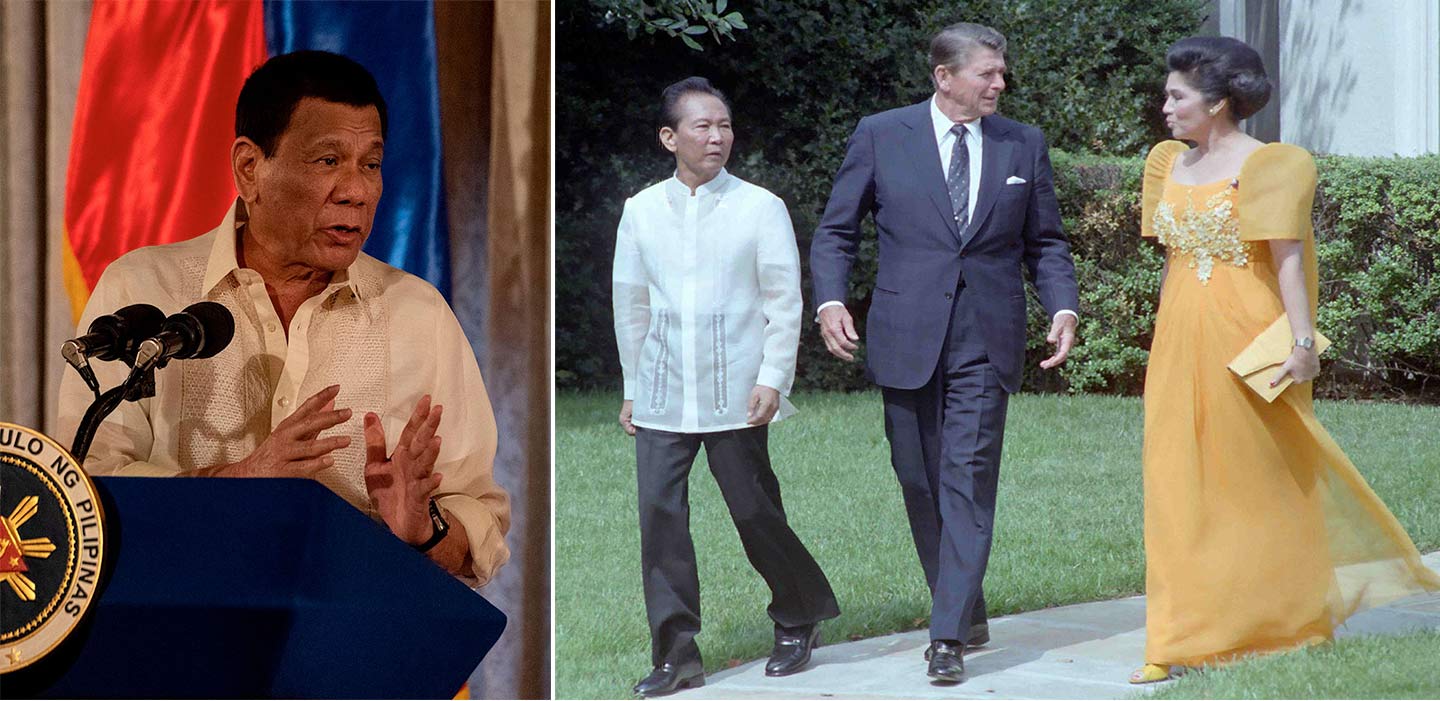
A Solution Ignored
Demilitarization of the South China Sea is obviously the most desirable solution—one which I promoted while serving in the House of Representatives of the Philippines a decade ago. In the spirit of advancing this, I published a piece in The New York Times in 2016 outlining confidence-building measures between members of the Association of Southeast Asian Nations (ASEAN), China, and the US. This proposal is even more urgent now, so it is worth laying out here:
First, since it is the fear of military encirclement by Washington that is driving China’s behavior, the Philippines and China should engage in bilateral talks to reduce tensions between our countries. The aim of these talks should be military de-escalation, not to settle the territorial question. One possible proposal could be a freeze in China’s base-building activities in exchange for a freeze in the implementation of E.D.C.A. [the US-Philippine Enhanced Defense Cooperation Agreement].
Second, with the Philippine- China bilateral talks, ASEAN and China can start the long-postponed multilateral talks to govern the maritime behavior of all parties with claims to the South China Sea.
Third, should these two measures succeed, ASEAN and China should negotiate the demilitarization and denuclearization of the South China Sea, with the goal of signing a multilateral treaty that would be binding on all parties, including third parties like the U.S. Such an agreement would require the Philippines to abandon the E.D.C.A. and China to dismantle military structures in the South China Sea.
These measures, if successful, would pave the way for the fourth step: Talks aimed at a final settlement of the territorial issue.
All of this fell on deaf ears in the Philippines, and neither Washington nor Beijing would have any of it either. Eight years later, the situation is even more tense. In the absence of any rules of conflict resolution, the only thing preventing conflict is the balance of power. But balance-of-power regimes are prone to breakdown, often with catastrophic results—as was the case in 1914, when the collapse of the European balance of power led to World War I. With Washington aggressively marshaling Japan, South Korea, the Philippines, the five carrier task forces of the US Navy, NATO, and the newly created AUKUS (Australia, United Kingdom, United States) alliance into a confrontational stance against China, the chances of a rupture in the East Asian balance of power are becoming more and more likely—perhaps just a collision or a water-hosing incident away.
A Losing Hand?
With the US agenda in the region increasingly reliant on Marcos Jr., Washington has become the president’s insurance policy. Rodrigo Duterte has admitted to talking to some retired Philippine generals, but he denies he was inciting them to a coup. But if he was, in fact, sounding them out for such a move, he was probably talking to the wrong people. The Philippine Armed Forces, a US colonial creation, are unlikely to move against Marcos without the Biden administration’s permission, and as far as Washington is concerned, Marcos Jr. is currently playing his assigned role perfectly.
Duterte knows he is playing a losing hand. Being a seasoned politician, expert in the ways of power, he understands that should the Marcoses and the US decide his presence has become a liability to Washington’s grand design, he could well find himself on a plane to The Hague. If the Americans could pluck a sitting head of state like Marcos Sr. in 1986 and ferry him against his will to Honolulu, how much easier would it be to repeat the exercise on an ex-president with no formal powers? Toward the end of his six-year term, Duterte knew that the only chance he stood of being safeguarded from the ICC was if his daughter succeeded him. Her decision not to run for president—whatever her reasons at the time—is now turning out to have been the dynasty’s biggest mistake. The patriarch’s choices are fast narrowing to two: go gently into that good night of political marginalization, or spend the rest of his life in a cell at The Hague.
Duterte’s likely inclination is to fight, and his daughter’s resignation from Marcos Jr.’s cabinet clears the deck for an all-out dynastic war that could have international consequences. Unfortunately, it is the Filipino people who will be the biggest victims of the latest episode of this Pacific Game of Thrones.
Hold the powerful to account by supporting The Nation
The chaos and cruelty of the Trump administration reaches new lows each week.
Trump’s catastrophic “Liberation Day” has wreaked havoc on the world economy and set up yet another constitutional crisis at home. Plainclothes officers continue to abduct university students off the streets. So-called “enemy aliens” are flown abroad to a mega prison against the orders of the courts. And Signalgate promises to be the first of many incompetence scandals that expose the brutal violence at the core of the American empire.
At a time when elite universities, powerful law firms, and influential media outlets are capitulating to Trump’s intimidation, The Nation is more determined than ever before to hold the powerful to account.
In just the last month, we’ve published reporting on how Trump outsources his mass deportation agenda to other countries, exposed the administration’s appeal to obscure laws to carry out its repressive agenda, and amplified the voices of brave student activists targeted by universities.
We also continue to tell the stories of those who fight back against Trump and Musk, whether on the streets in growing protest movements, in town halls across the country, or in critical state elections—like Wisconsin’s recent state Supreme Court race—that provide a model for resisting Trumpism and prove that Musk can’t buy our democracy.
This is the journalism that matters in 2025. But we can’t do this without you. As a reader-supported publication, we rely on the support of generous donors. Please, help make our essential independent journalism possible with a donation today.
In solidarity,
The Editors
The Nation

